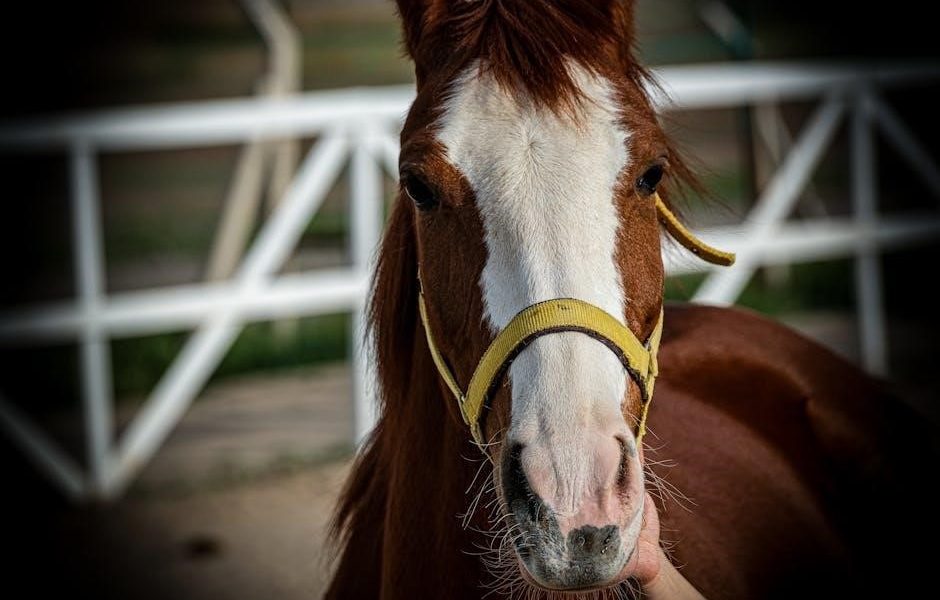
animal farm critical analysis pdf
George Orwell’s Animal Farm is a timeless allegory exploring themes of power, corruption, and the betrayal of revolutionary ideals, set against the backdrop of the Russian Revolution. Its enduring relevance lies in its ability to critique authoritarian regimes and societal structures, making it a cornerstone of political and literary discourse. The novel’s simplicity belies its profound commentary on human nature, rendering it a vital text for understanding historical and contemporary sociopolitical issues.
1.1 Overview of George Orwell’s Animal Farm
George Orwell’s Animal Farm is a powerful allegory of the Russian Revolution, depicting the transition from revolutionary ideals to totalitarian rule. The novel follows farm animals who rebel against their oppressive owner, only to see their newfound freedom corrupted by power struggles among the pigs, who manipulate and exploit the others. This critique of authoritarianism remains universally relevant.
1.2 Historical Context: The Russian Revolution and Stalinism
Animal Farm mirrors the Russian Revolution’s trajectory, from the overthrow of Tsar Nicholas II to Stalin’s rise. Orwell critiques the corruption of revolutionary ideals under Stalinism, where power consolidates among a few, mirroring the pigs’ takeover. The novel serves as a cautionary tale about authoritarianism and the erosion of freedom, drawing parallels to historical events with chilling accuracy.
1.3 The Allegorical Nature of the Novel
Orwell employs allegory to critique political ideologies, using animals to represent historical figures and classes. The pigs symbolize the Communist Party, while other animals embody various societal roles. This narrative technique allows Orwell to explore complex themes like power corruption and ideological manipulation through a deceptively simple story, enhancing the universality and depth of his critique.
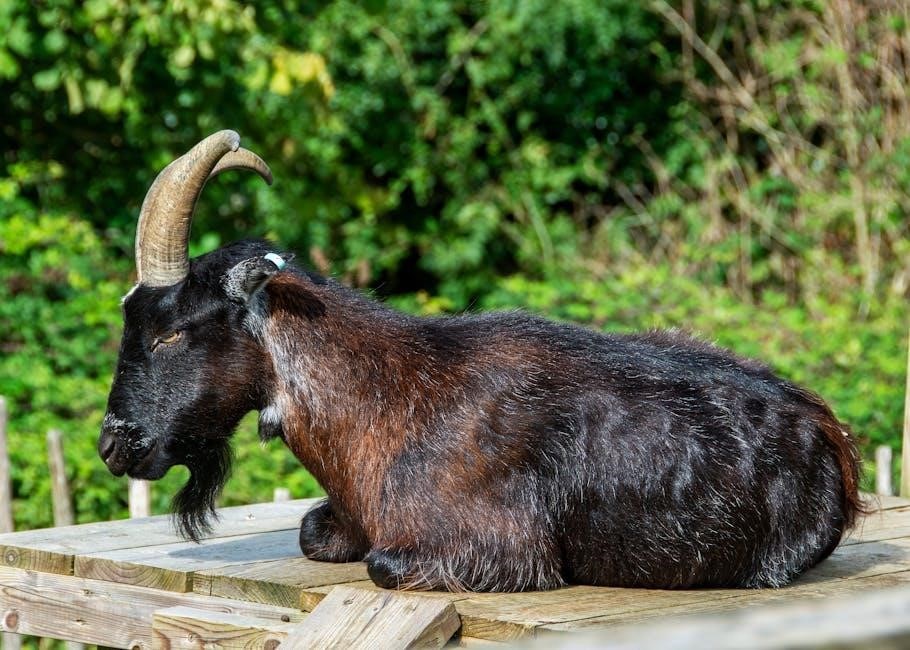
Critical Analysis of Characters and Symbolism
In Animal Farm, characters and symbols reflect broader societal roles and power dynamics, offering a nuanced critique of corruption and exploitation through allegorical representations.
2.1 Character Symbolism: Mollie, Boxer, and Benjamin
Mollie, Boxer, and Benjamin embody distinct symbolic roles in Animal Farm. Mollie represents indulgence and disengagement, Boxer symbolizes the exploited working class, and Benjamin signifies cynicism and intellectual detachment. Their actions and fates reflect broader themes of class struggle, corruption, and the erosion of revolutionary ideals, offering profound insights into societal dynamics and power structures.
2.2 The Role of the Pigs: Napoleon, Snowball, and Their Ideologies
Napoleon and Snowball, the pigs, symbolize opposing ideologies in Animal Farm. Napoleon embodies authoritarianism and power consolidation, while Snowball represents idealism and revolutionary change. Their conflict mirrors Stalin and Trotsky’s rivalry, with Napoleon’s manipulation and expulsion of Snowball highlighting the corrupting influence of power and the betrayal of revolutionary principles, leading to the farm’s authoritarian decline.
2.3 The Representation of the Working Class in Animal Farm
The working-class animals, such as Boxer and Benjamin, symbolize the exploited labor force in societies. Boxer’s relentless work ethic and eventual betrayal by the pigs highlight the exploitation of the proletariat. Benjamin’s skeptical nature reflects the class’s awareness of their oppression yet passive acceptance. Orwell critiques how power structures manipulate and discard the working class, emphasizing their resilience and tragic fate in revolutionary movements.
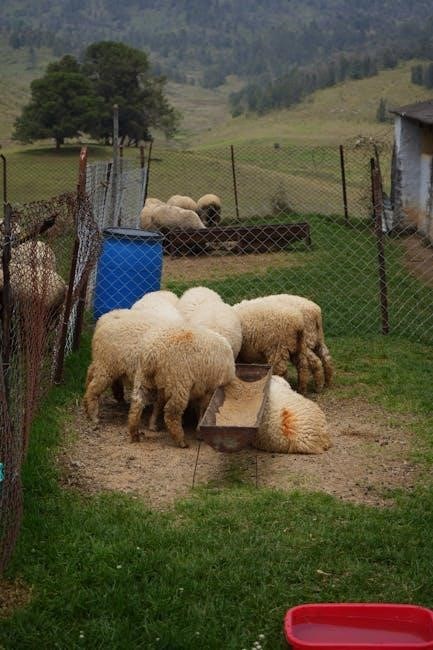
Themes and Motifs in Animal Farm
Animal Farm explores themes of totalitarianism, corruption, and the betrayal of revolutionary ideals, highlighting how power corrupts even the noblest causes, leading to oppression and societal division.
3.1 The Dangers of Totalitarianism and Authoritarianism
Orwell’s Animal Farm vividly portrays the dangers of totalitarianism through Napoleon’s rise to power. The novel illustrates how authoritarian regimes exploit fear, manipulate truth, and suppress dissent, leading to the erosion of freedom and the corruption of revolutionary ideals. The pigs’ consolidation of power mirrors the oppressive tactics of Stalinism, serving as a warning against unchecked authority and its devastating consequences.
3.2 Corruption of Power and Its Impact on Society
In Animal Farm, the pigs’ gradual corruption of power exemplifies how authority, once entrusted, can degenerate into exploitation. Napoleon and his cohorts manipulate language, alter history, and exploit the working class, fostering inequality and stifling dissent. This mirrors Orwell’s critique of Stalinism, where power centralizes and societal ideals are betrayed, leading to oppression and the erosion of freedom, underscoring the dangers of unchecked authority.
3.3 The Betrayal of Revolutionary Ideals
The pigs’ gradual corruption of the Seven Commandments and the exploitation of the animals exemplify the betrayal of the revolution’s original ideals. The pigs, led by Napoleon, manipulate truth and justify inequality, reducing the commandments to “All Animals Are Equal” while reserving privileges for themselves. This mirrors Orwell’s critique of how revolutionary movements often devolve into tyranny, betraying their founding principles and exploiting the labor of the working class, as seen in the tragic fate of Boxer, who is discarded after his usefulness ends.
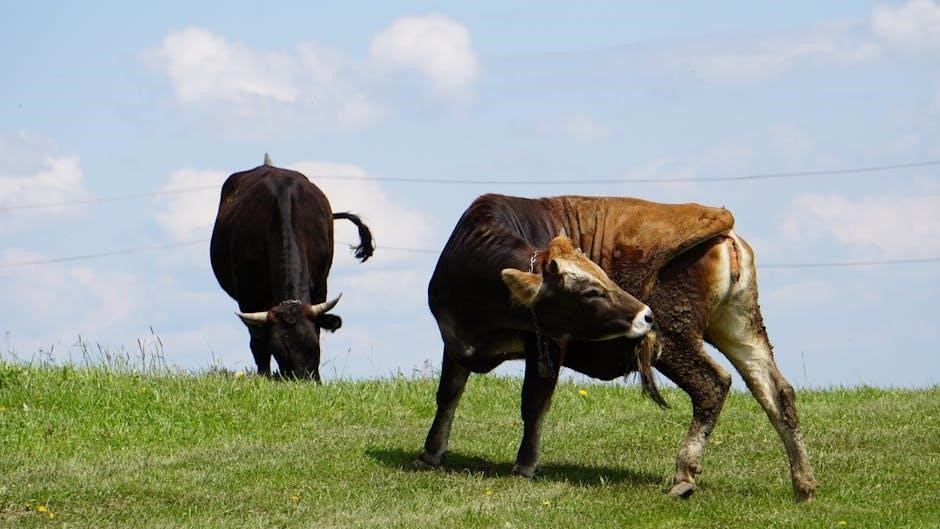
Literary Devices and Techniques
Orwell employs allegory, symbolism, and irony to critique totalitarianism and corruption. The novel’s layered meaning and satirical tone enhance its exploration of power dynamics and societal manipulation.
4.1 Allegory as a Literary Device
Orwell masterfully uses allegory in Animal Farm to mirror the Russian Revolution and Stalinism. The farm serves as a microcosm of society, with animals representing historical figures and events. This literary device allows Orwell to critique totalitarianism and corruption subtly, making the novel both a compelling story and a profound political commentary. The allegorical structure enhances the universality of its themes and messages.
4.2 Symbolism in the Novel: The Barn, the Seven Commandments, and the Song
The barn symbolizes the heart of the revolution, where the animals gather to discuss and shape their ideals. The Seven Commandments, initially a moral framework, are later altered to justify the pigs’ corruption. The song Beasts of England embodies the longing for freedom and unity, contrasting with the eventual disillusionment. These symbols underscore the novel’s exploration of power’s corrupting influence and the erosion of revolutionary ideals.
4.3 Irony and Satire in Orwell’s Writing Style
Orwell employs irony and satire masterfully in Animal Farm, highlighting the pigs’ corruption and the betrayal of revolutionary ideals. The transformation of the Seven Commandments into justifications for tyranny is a stark example of irony. Satirical elements, such as the pigs’ mimicry of human behavior, critique authoritarianism and the exploitation of power, offering a scathing commentary on political corruption and societal manipulation.
The Role of Power and Corruption
The pigs’ consolidation of power in Animal Farm illustrates how authority corrupts, as they exploit their intelligence to manipulate and control the other animals, justifying tyranny.
5.1 The Consolidation of Power by the Pigs
The pigs, leveraging their intelligence, gradually consolidate power on Animal Farm. They manipulate the Seven Commandments, rewrite history, and propagate ideologies to justify their dominance. Using fear and misinformation, they suppress dissent, turning the farm into a dictatorship. The pigs’ actions mirror human authoritarian regimes, highlighting the corrupting influence of unchecked power and the erosion of revolutionary ideals. Their rise underscores the dangers of autocracy and manipulation.
5.2 The Manipulation of Language and Truth
The pigs manipulate language and truth to maintain control, altering the Seven Commandments and using propaganda to justify their actions. They distort reality, eroding the animals’ perception of truth. This manipulation underscores Orwell’s critique of authoritarian tactics, where language is weaponized to suppress dissent and consolidate power, ultimately leading to the erosion of the animals’ autonomy and the betrayal of the revolution’s ideals.
5.3 The Exploitation of the Working Class (Animals)
The pigs exploit the working-class animals, particularly Boxer, who toils relentlessly without recognition. Their labor fuels the farm’s survival, yet they receive minimal rewards. The pigs justify their actions by altering the Seven Commandments, ensuring their dominance and the animals’ subjugation. This reflects Orwell’s critique of systems where power corrupts, leading to the exploitation of the proletariat by those in authority.
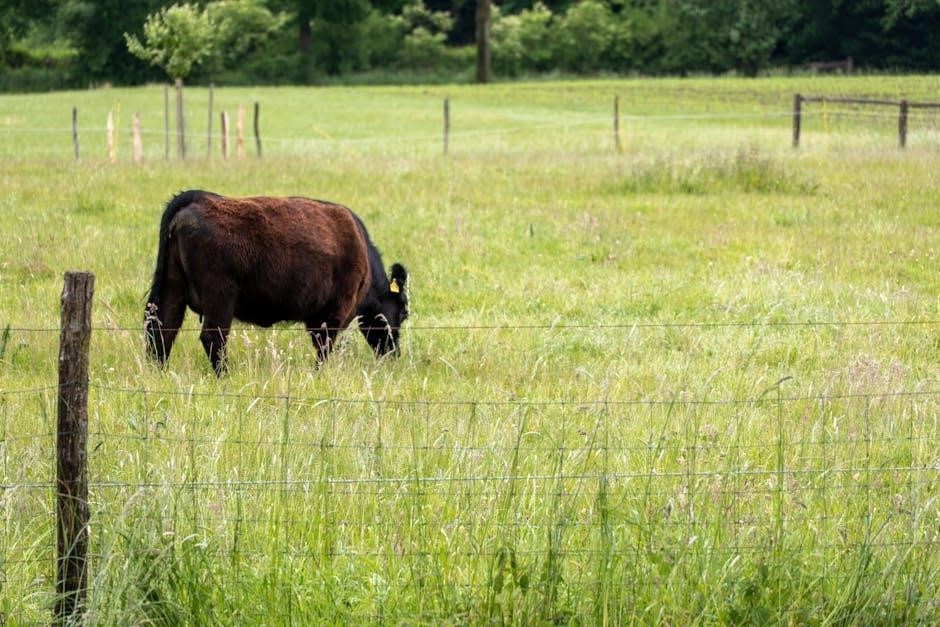
The Downfall of the Revolution
The revolution collapses due to internal conflicts and corruption. The animals’ unity fractures as power struggles and greed prevail, leading to the displacement of the original ideals and the rise of self-interest and authoritarianism.
6.1 The Disintegration of Unity Among the Animals
The animals’ initial unity fractures as internal conflicts arise. The pigs exploit their intelligence to manipulate others, altering the Seven Commandments to justify their dominance. Disillusionment grows among the working-class animals, like Boxer, as their labor is exploited. Trust erodes, replaced by suspicion and self-interest, ultimately fragmenting the collective vision and leading to the collapse of their revolutionary ideals.
6.2 The Rise of Dictatorship on the Farm
Napoleon’s consolidation of power marks the transition from collective leadership to outright dictatorship. He manipulates the system, using fear and propaganda to maintain control, while the other animals become increasingly submissive. The pigs’ exploitation of power mirrors Stalinist tactics, as dissent is suppressed and the farm’s governance is reshaped to serve the ruling elite, eroding the principles of equality and justice.
6.3 The Tragic Fate of Boxer and Its Symbolism
Boxer, the dedicated and hardworking horse, embodies the exploited working class. His tragic fate—death after being sold to a glue factory—symbolizes the betrayal of revolutionary ideals. Despite his unwavering loyalty, the pigs exploit his labor and abandon him, highlighting the corruption of power and the erosion of compassion, serving as a poignant critique of systemic oppression and the fate of the loyal proletariat.
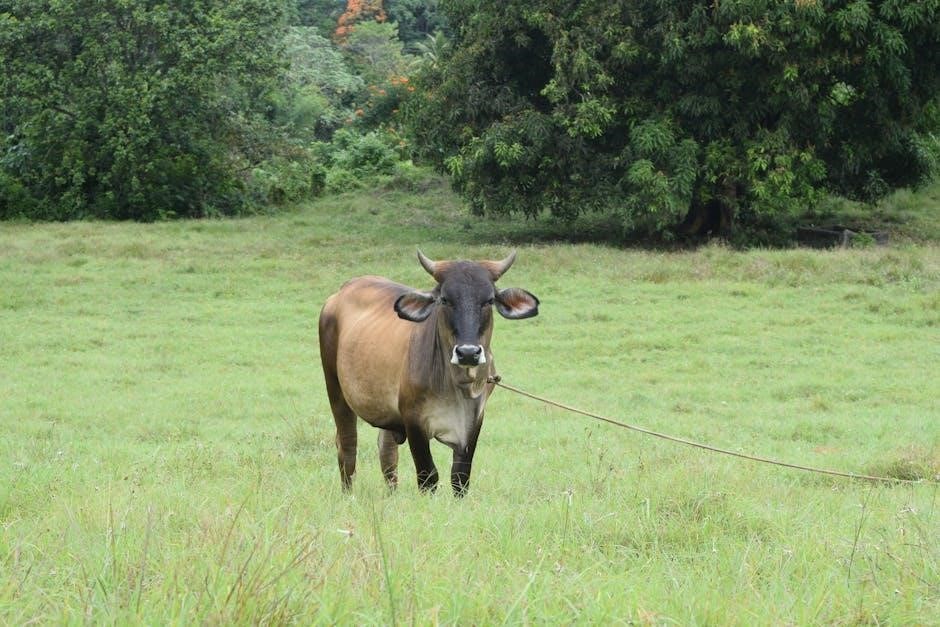
Comparative Analysis with the Russian Revolution
Animal Farm mirrors the Russian Revolution, with Napoleon and Snowball representing Stalin and Trotsky. The novel reflects the corruption of power and the betrayal of ideals, paralleling the Soviet Union’s rise and decline, while propaganda shapes perceptions, highlighting Orwell’s critique of authoritarianism and its consequences.
7.1 The Representation of Stalin and Trotsky in Animal Farm
Napoleon embodies Joseph Stalin, representing totalitarianism and manipulation, while Snowball mirrors Leon Trotsky, symbolizing idealism and intellectualism. Orwell critiques Stalinism through Napoleon’s consolidation of power and betrayal of revolutionary ideals. The pigs’ actions reflect the Soviet regime’s corruption, with Napoleon’s manipulation of truth and language paralleling Stalin’s propaganda. The power struggle between Napoleon and Snowball highlights the tragic division within revolutionary movements, mirroring historical events. Orwell’s portrayal underscores the dangers of authoritarianism and the distortion of revolutionary goals.
7.2 The Comparison of the Farm’s Decline to the Soviet Union’s Rise
The farm’s gradual decline mirrors the Soviet Union’s rise under Stalin, marked by corruption and authoritarianism. As the pigs consolidate power, the farm’s ideals crumble, echoing the Soviet regime’s departure from its revolutionary goals. The exploitation of the working class on the farm parallels the oppression of Soviet citizens, illustrating Orwell’s critique of how power corrupts and revolutions fail to deliver their promises.
7.3 The Role of Propaganda in Both Scenarios
Propaganda plays a pivotal role in both Animal Farm and the Soviet Union, manipulating perceptions to maintain power. The pigs alter the Seven Commandments and use slogans to justify their actions, mirroring Stalin’s regime, which employed propaganda to distort reality. This manipulation erodes truth, enabling authoritarian control and the exploitation of the working class, highlighting the dangers of ideological distortion in both scenarios.
Critical Discourse Analysis
This section examines how power dynamics and class struggles are portrayed through language, highlighting the manipulation of truth and the reinforcement of societal hierarchies in the novel.
8.1 The Portrayal of Class Struggle in the Novel
The novel vividly portrays class struggle through the hierarchy of animals, with pigs representing the ruling class and working animals like Boxer symbolizing the exploited proletariat. Orwell critiques authoritarianism by showing how power dynamics lead to manipulation and exploitation, highlighting the tension between the privileged few and the oppressed majority.
8.2 The Use of Language to Shape Perception
Orwell masterfully demonstrates how language is manipulated to shape perception, as seen in the pigs’ alteration of the Seven Commandments and their use of propaganda. Words are weaponized to justify power grabs, like changing “All Animals are Equal” to “All Animals are Equal / But Some Animals are More Equal than Others.” This reflects how language can distort truth and maintain control over the narrative.
8.3 The Reflection of Sociopolitical Issues
Animal Farm serves as a mirror to sociopolitical issues, particularly the rise of authoritarianism and the corruption of revolutionary ideals. The novel critiques the Russian Revolution and Stalinism, illustrating how power consolidates and manipulates societal structures. Orwell’s portrayal of the pigs’ transformation into oppressive leaders reflects the dangers of unchecked authority and the erosion of democratic principles, resonating with universal themes of justice and equality.
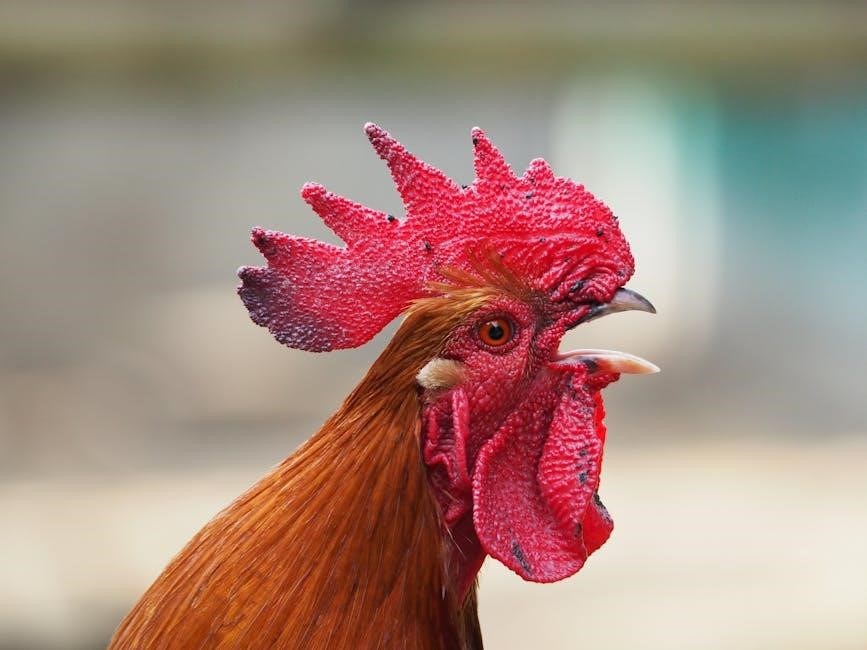
Legacy and Relevance of Animal Farm Today
George Orwell’s Animal Farm remains a powerful cautionary tale, influencing political discourse and education, offering timeless insights into power dynamics and societal structures today.
9.1 The Timeless Message of the Novel
Animal Farm delivers a universal warning about the dangers of unchecked power, corruption, and the erosion of idealism. Its exploration of how power corrupts and ideologies distort remains starkly relevant today, offering insights into human nature and societal dynamics. The novel’s themes of betrayal, manipulation, and the cyclical nature of oppression continue to resonate, making it a vital text for understanding political and social realities.
9.2 The Novel’s Influence on Political and Social Discourse
Animal Farm has profoundly shaped political and social discourse, serving as a catalyst for discussions on power dynamics, corruption, and authoritarianism. Its allegorical critique of Stalinism and totalitarianism continues to inspire critical essays and educational analyses, making it a cornerstone of political literacy. The novel’s themes resonate in contemporary debates, highlighting its enduring relevance in understanding leadership and societal structures.
9.3 The Continued Use of Animal Farm in Educational Settings
Animal Farm remains a staple in educational curricula due to its rich themes and allegorical depth. Teachers use it to explore critical thinking, moral dilemmas, and historical contexts like the Russian Revolution. Its accessible narrative makes complex ideologies understandable, fostering discussions on power dynamics and societal structures. Educational resources, including essays and analyses, further enhance its pedagogical value, ensuring its relevance in classrooms worldwide.
Animal Farm remains a powerful critique of power dynamics and corruption, offering timeless lessons on the dangers of authoritarianism. Its enduring relevance continues to inspire critical thought and moral reflection, solidifying its significance in understanding human nature and sociopolitical realities.
10.1 Summary of Key Themes and Analysis
Animal Farm critiques totalitarianism, highlighting the corruption of power and the betrayal of revolutionary ideals. Through allegory, Orwell examines how power consolidates, truth distorts, and working-class exploitation occurs. The novel mirrors the Russian Revolution, offering a cautionary tale about authoritarianism and the erosion of equality. Its themes remain relevant, providing timeless insights into human nature and political dynamics.
10.2 The Enduring Impact of Animal Farm on Critical Thought
Animal Farm remains a cornerstone of critical thought, offering timeless insights into power dynamics and societal structures. Its allegorical style enables universal relevance, sparking discussions on corruption, authoritarianism, and revolutionary ideals. The novel’s adaptability across educational and cultural contexts ensures its continued influence, solidifying its place as a vital tool for analyzing historical and contemporary sociopolitical issues.
10.3 Final Thoughts on the Novel’s Significance
Animal Farm stands as a profound cautionary tale, offering insights into the dangers of unchecked power and the erosion of idealism. Its universal themes of corruption, betrayal, and the cyclical nature of oppression resonate across generations. As a literary masterpiece, it continues to inspire critical thought, serving as a mirror to humanity’s struggles with authority and freedom, ensuring its enduring relevance in modern discourse.
Related posts:
Archives
- February 2026
- January 2026
- December 2025
- November 2025
- October 2025
- September 2025
- August 2025
- July 2025
- June 2025
- May 2025
- April 2025
- March 2025
- February 2025
- January 2025
- December 2024
- November 2024
- October 2024
- September 2024
- August 2024
- July 2024
- June 2024
- May 2024
- April 2024
- March 2024
- February 2024
- January 2024
- December 2023
- November 2023
- October 2023
- September 2023
- August 2023
- July 2023
- June 2023
- May 2023
Leave a Reply
You must be logged in to post a comment.